After a long delay from the pandemic, Nia DaCosta’s Candyman reboot finally releases this week and it’s really damn good. Check out our full review!
I have a confession to make first…I wasn’t the biggest fan of the first Candyman. Everyone knows I’m a big weenie when it comes to horror films. Despite knowing much of the lore surrounding the film, it wasn’t until last year (in prepping for DaCosta’s reboot) that I finally sat down to fill in that cultural blank spot.
Directed By: Nia DaCosta
Written By: Nia DaCosta, Jordan Peele, Win Rosenfeld
Starring: Yahya Abdul-Mateen, Teyonah Parris, Nathan Stewart-Jarrett, Colman Domingo
Release Date: August 27, 2021
I greatly appreciated the type of story it was telling, and the context of the symbolism behind it…but something in the film just didn’t click for me. That said, I was still very much looking forward to the new film, if only because the trailers were so impressive. Not only does the new Candyman manage to be as excellent as the trailers teased, but it ultimately made me enjoy the original film even more. Let’s dive into it…
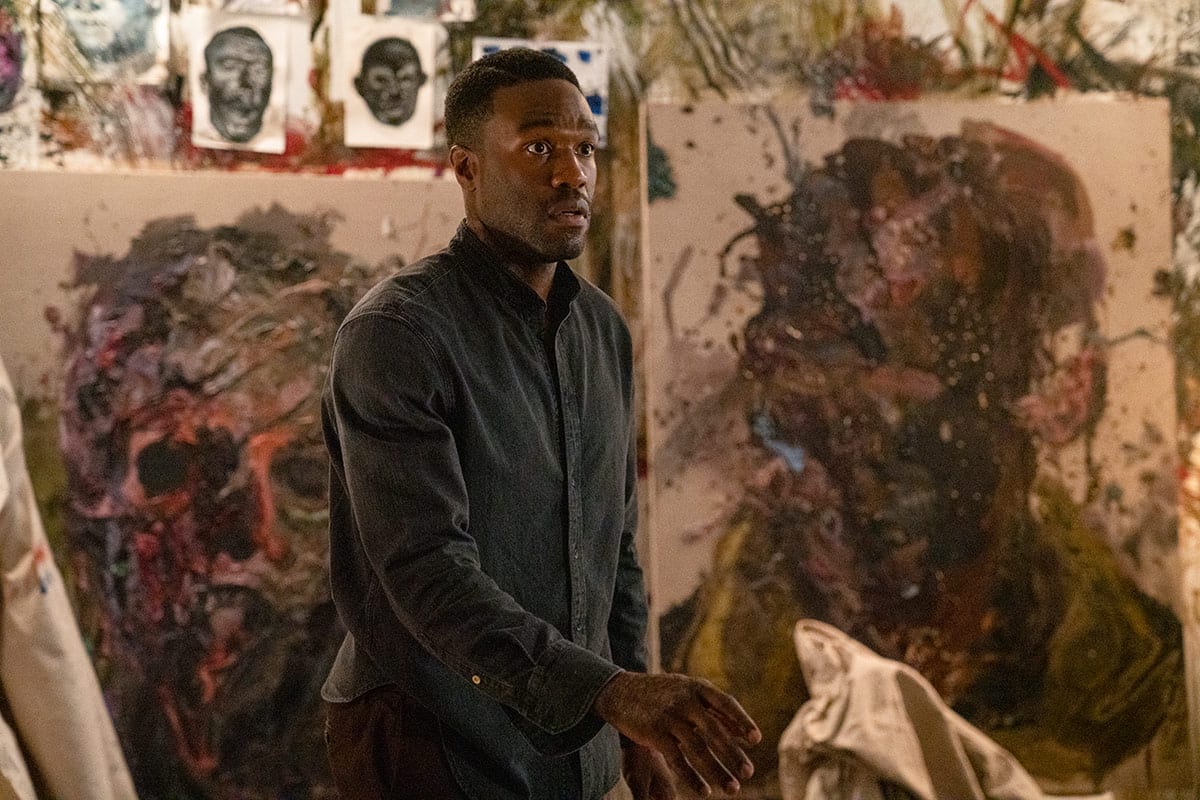
A Modern Urban Legend
Candyman takes place during the present day—though there are a number of flashbacks to a previous period of time—and puts the focus on Anthony McCoy (Yahya Abdul-Mateen II) and Brianna Cartwright (Teyonah Parris). Anthony is an artist with a lot of expectations placed on him. Expectations he feels the weight of as he struggles to create new pieces for an upcoming art gallery.
Brianna works as an art gallery director who just so happens to be his girlfriend and primary support while Anthony struggles to find inspiration. The couple have recently moved into a new apartment in Cabrini-Green. Fans of the original will instantly recognize the name of the housing development where the first film took place as well. Gone are the rundown “projects” and instead a hip/new area has risen up to take its place.
The area has been gentrified (a theme we’ll come back to shortly) in an attempt to erase the terrible history, but certain legends continue to persist. Upon learning about the story of Candyman, Anthony dives deeper into the history of his new locale to uncover the ‘truth’ behind it all as it begins to dominate his work.
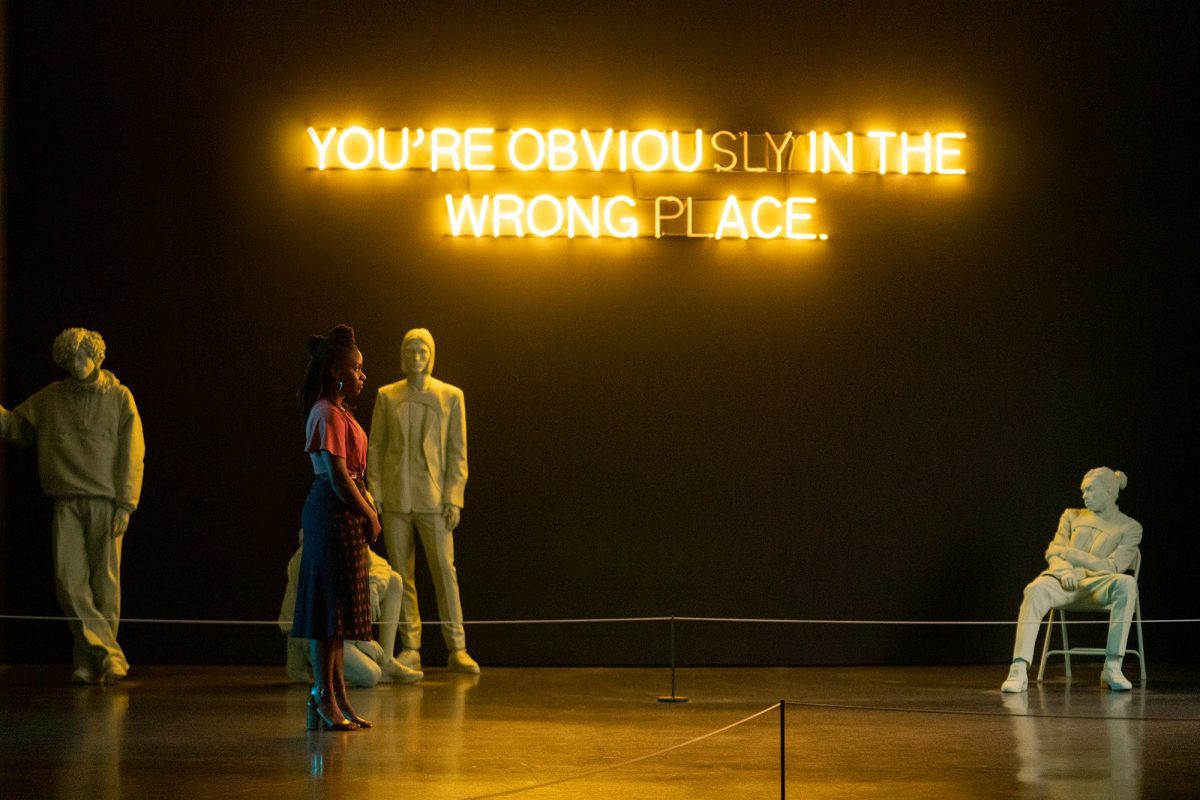
It isn’t long before his search becomes an obsession and his new art installation reignites the legend among the larger community. As a new series of murders begin to rock the community, Anthony struggles to determine if what’s going on is real, or his own madness taking root.
There are quite a few twists I wasn’t expecting to see, but I won’t go into them here, as I think seeing them for yourself will have a larger impact. I will say, however, that the way the film played around with the ideas and how it connects to the original (yes, this is more of a “legacy sequel” rather than an outright reboot), was brilliant.
In short, I loved it. It took the ideas from the original and expanded them into ways that feel both new, and absolutely rooted within its own history. The acting is impressive all around and the characters feel instantly real and engaging from the moment they come on screen. There’s a flow to their interactions that feel grounded (ranging between levity and terror) even as things begin to get supernatural.
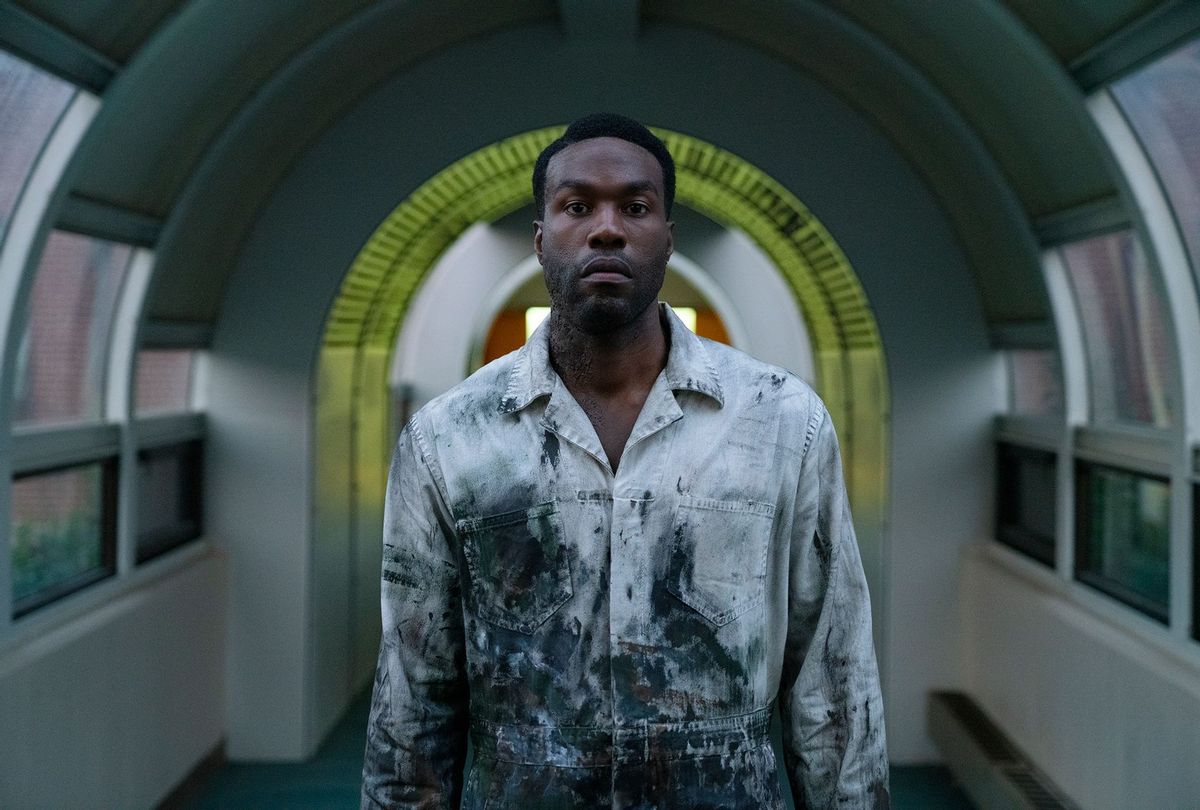
A Lot With a Little
Coming in at just 90 minutes long, Candyman moves along at a striking pace. From the moment it starts, to the ending credits, the story and characters pull you along, keeping you glued to the screen. Though there are plenty of moments that leave you feeling breathless, the film makes sure to take time for slower moments as well. This balance ensures that the horror moments, and reveals, have a bigger impact and truly makes you think about the things you’re seeing.
Beyond the blood and guts elements, of which there are plenty, Candyman is definitely a movie I’m going to be thinking about for a long time. It’s core themes hit like a punch to the gut, though it never feels like its beating you over the head with it either.
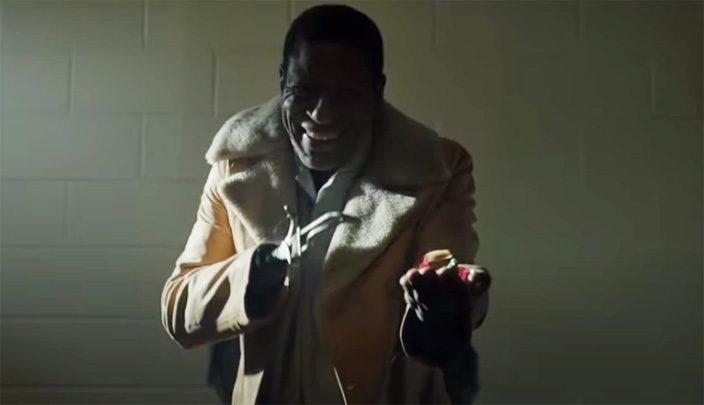
Even in the original film, the story of Candyman is one of pain and the horrors many black people have had to endure. While the Candyman himself is a representation of tribulations from the past, everything about Cabrini-Green and the residents’ embrasure of his legend shines a light on ongoing oppression.
In the new film, we see the revitalized (gentrified) Cabrini-Green that was alluded to in the previous movie. So we’re starting from a different place than before, where the trauma and pain are no longer visible on the surface, but buried, threatening to be forgotten and never appropriately dealt with.
There’s a moment in the film that continues to stick with me, fairly early on, that showcases how DaCosta utilized the setting/city itself to tell this story and hammer home those themes. After learning about Candyman, Anthony heads out to a nearby, rundown area of town. One that harkens back to the area’s days of the Projects, but closed off and awaiting its fate.
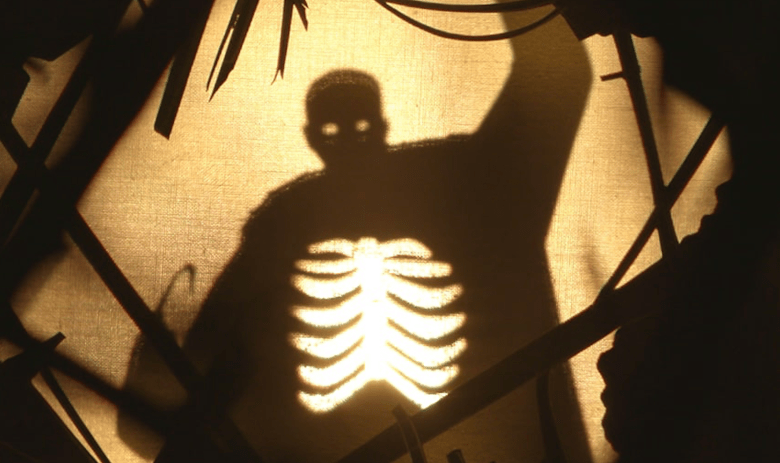
It’s a stunning shot that seems simple, as it’s pretty much just a wide/establishing shot showing Anthony standing in the middle of what’s essentially a ghost town. Yet all around you can see the vastness of the bustling Chicago skyline. Seeing the vibrancy of the city starkly contrasted with the rundown area hammers home the idea that this place, and the community around it, have been left behind.
Visual quirks like this abound throughout the film’s runtime, telling the story beyond the dialog we hear between characters. This old vs. new concept is a lot of fun to see play out on the screen. It does a great job showing how people would deal with such an urban legend in our current day and it makes for some fun/unique horror moments (i.e. the high-schoolers essentially turning it into a “challenge”).
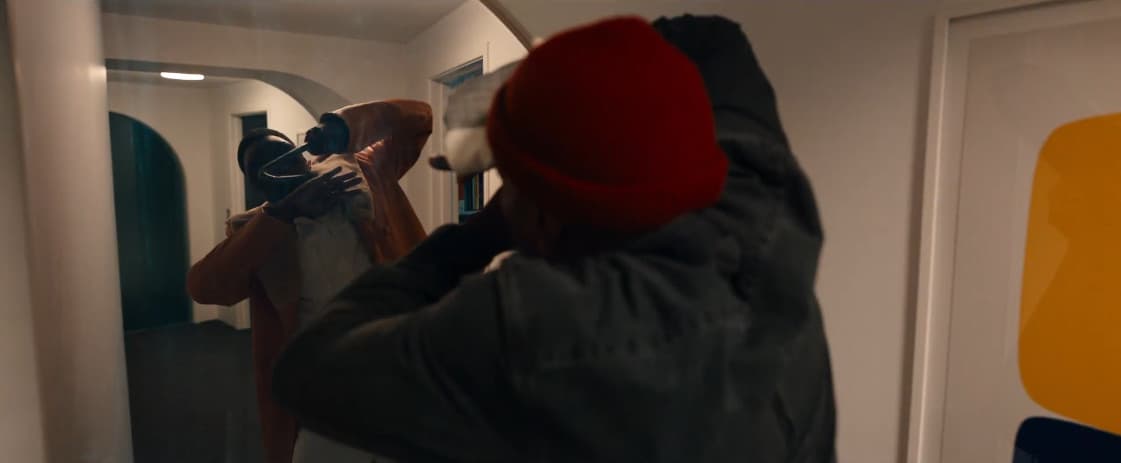
Many of the story beats follow a similar track as the original film, but DaCosta expertly twists them to fit into a new story that even expands on the old. Anthony’s dive into the Candyman mythos mirrors Helen Lyle’s (from the original). Both begin innocently enough, but find themselves trapped in the story they’ve uncovered. By the end, neither can be sure if their experiences are real or the product of their descent into madness.
It, obviously, doesn’t tread the exact same ground, but these moments illuminate the cyclical nature of the legend and its role in coping/moving forward. Where Helen’s journey was a cautionary tale in how curiosity can turn into obsession, and ultimately madness; Anthony’s journey is a brutal lesson in failing to rectify the wrongs of the past and the trauma wrought from it.
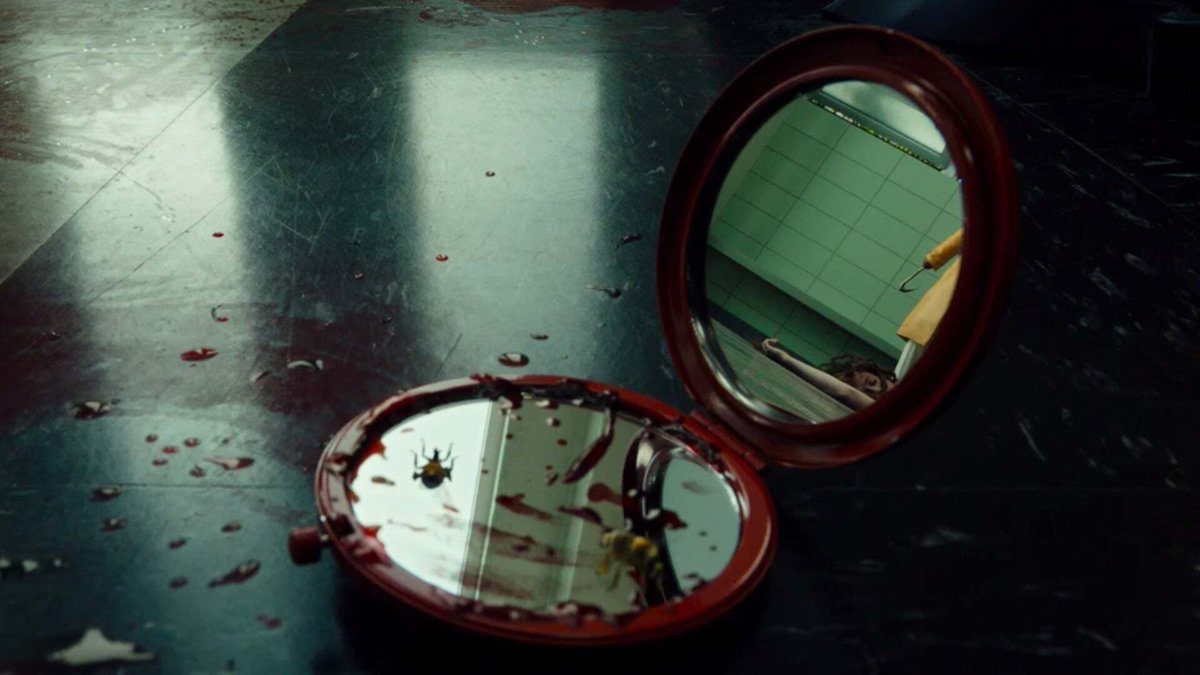
Quick Bits
Camera Work – Candyman is absolutely gorgeous and uses a number of stunning shots. It easily has some of the best mirror/reflection shots I’ve ever seen in a film. Each frame is packed with information and details that I KNOW I missed on the first viewing.
Creative – The body count in this Candyman is definitely higher than the previous film, but it’s how the film showed those kills that really stick with you. I’m not a huge fan of gore, but the movie has some neat ideas on how to show it that feel unique and fresh.
Pacing – There is one story beat that doesn’t benefit from the film’s brisk pacing. I won’t go into specifics as it happens later in the film, but there’s a revelation I think needed just a few more minutes of explanation to really stick. Something about it just felt out of left field without enough time left to get into it.

